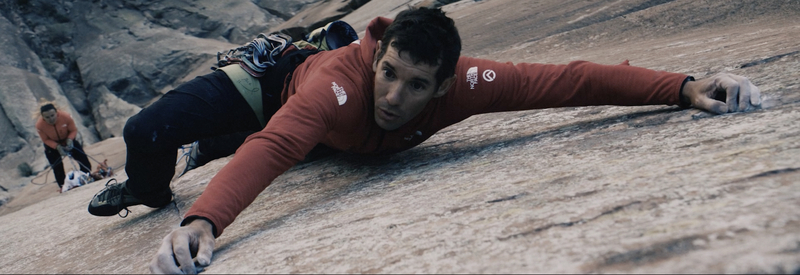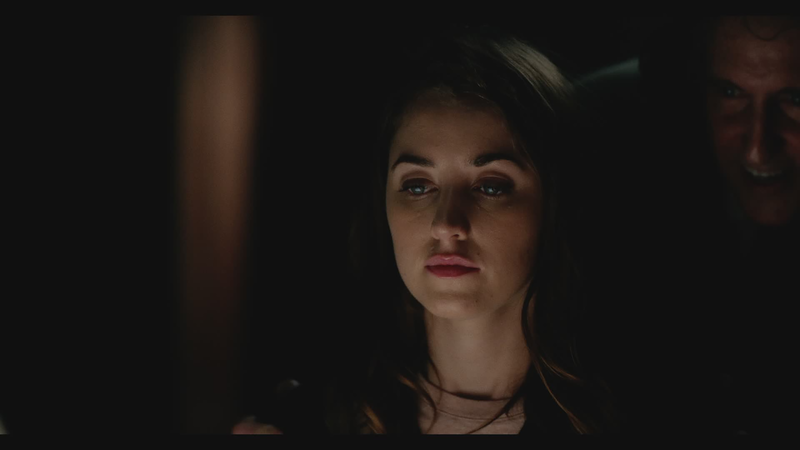
Sometimes Survival Isn’t the Real Challenge
MOVIE REVIEW
The Sound
–
Genre: Thriller, Horror, Action
Year Released: 2025
Runtime: 1h 44m
Director(s): Brendan Devane
Writer(s): Brendan Devane
Cast: Marc Hills, Rachel Finninger, Nicholas Baroudi, Jocelyn Hudon, William Fichtner, Christina Kirkman, Jolene Kay, David Clennon, Hazel Findlay, Brette Harrington, Adrian Ballinger, Alex Honnold
Where to Watch: opens nationwide June 27, 2025
RAVING REVIEW: Sometimes the most terrifying threats aren’t lurking in the shadows—they’re waiting in plain sight, hidden in the wind, tremors in rock, and the psychological tension of a place no human was meant to be. That’s the gamble this horror thriller takes, placing the viewer high above the earth on a deadly climb and asking: what happens when the unknown joins you on the ascent?
Instead of sticking with traditional supernatural tropes or standard haunted environments (until it doesn’t,) the film opts for altitude as its primary tension builder. The setting—a towering cliff long off-limits to climbers—offers a natural sense of isolation and vulnerability. But it’s more than a physical challenge.
Sean (Marc Hills) isn’t just trying to complete a climb—he’s confronting the history of a grandfather who never returned from the same wall and a father still carrying the emotional fallout. That fractured dynamic between Sean and his father Conner (William Fichtner) feels lived-in, and while it’s not always front and center, the weight of their past informs every decision and moment of hesitation.
Using real climbing professionals to portray parts of the expedition elevates the film, literally and creatively. Instead of relying on all CGI to fake these ascents, the filmmakers took the risk of filming actual climbers at significant heights. That decision pays off in shots that feel authentic rather than manufactured. The grit under fingernails, the fatigue in the shoulders, the unpredictable sway of rope—these moments land with greater impact because they’re grounded in physical reality.
But the horror here isn’t just in the altitude—it’s in suggesting something else may be present. The film doesn’t offer a clearly defined antagonist. There’s no explanation of what’s there. That ambiguity works to its advantage, as the characters—and the audience—are left guessing. A sudden gust of wind, a misheard whisper, a slight echo off the rock—each becomes a potential threat.
A minimalistic score from James Iha reinforces this subtlety. The music doesn’t lead the audience; it lingers. It drifts in and out like wind in a canyon, letting ambient sound—creaking gear, shifting stone—do most of the work. It’s a smart choice that allows the natural elements to carry emotional weight, rather than over-explaining every moment through sound.
While the atmosphere is strong, the structure stumbles in spots. The narrative leans too hard on familiar horror cliches—group members separating, unexplained vanishings, moments of frantic energy that break from the quieter tension the film establishes early on. Those moments aren’t without purpose, but sometimes feel borrowed rather than earned. The film's strongest parts come when it leans into its uniqueness, not when it follows genre instructions.
There’s a lot here thematically, particularly around the generational trauma passed from one climber to the next. While those ideas are touched on, they’re not always fully explored. A stronger connection between the psychological stakes and the horror elements could have added depth.
Yet, despite those gaps, the movie consistently finds ways to keep you off-balance. Its strongest moments come not from elaborate effects or shocking twists but from the atmosphere it builds and the restraint it shows. It understands that horror doesn’t always need to announce itself—it can just stand behind you, saying nothing, letting the fear build on its own.
The film finds fresh ground by putting the action in real physical feats and focusing on isolation as a pressure point. It’s not flashy—it doesn’t need to be. The tension comes from trusting the audience to feel it, knowing that something is slightly off, but no one knows what.
For a film that takes place largely on a cliff face, it delivers a layered experience. Its emotion is strong, its visual approach effective, and its commitment to ambiguity surprisingly bold. While a few more character-driven insights and tighter scripting choices could have pushed it further, the result is still a worthwhile climb. It's the kind of story that keeps you thinking afterward—not just about what happened, but what might have.
Please visit https://linktr.ee/overlyhonestr for more reviews.
You can follow me on Letterboxd, Instagram, Twitter, and YouTube. My social media accounts can also be found on most platforms by searching for 'Overly Honest Reviews'.
I’m always happy to hear from my readers; please don't hesitate to say hello or send me any questions about movies.
[photo courtesy of BLUE HARBOR ENTERTAINMENT]
DISCLAIMER:
At Overly Honest Movie Reviews, we value honesty and transparency. Occasionally, we receive complimentary items for review, including DVDs, Blu-rays, CDs, Vinyl Records, Books, and more. We assure you that these arrangements do not influence our reviews, as we are committed to providing unbiased and sincere evaluations. We aim to help you make informed entertainment choices regardless of our relationship with distributors or producers.
Amazon Affiliate Links:
Additionally, this site contains Amazon affiliate links. If you purchase through these links, we may receive a commission. This affiliate arrangement does not affect our commitment to honest reviews and helps support our site. We appreciate your trust and support in navigating these links.



Average Rating